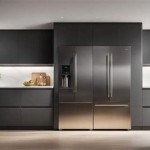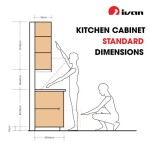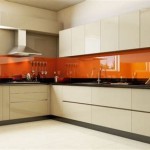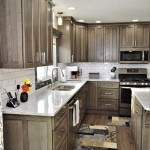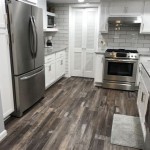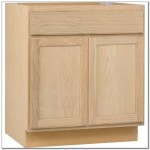Should I Paint the Inside of My Kitchen Cabinet Doors?
When considering a kitchen remodel, painting the inside of your cabinet doors may not be at the forefront of your mind. But it's a simple and effective way to refresh your kitchen's look, add a touch of personality, and potentially extend the life of your cabinets.
Before you embark on this project, it's essential to weigh the pros and cons carefully. Here's a comprehensive guide to help you make an informed decision.
Benefits of Painting Kitchen Cabinet Door Interiors
Enhanced Kitchen Aesthetics: Painting the inside of your cabinet doors can create a dramatic visual impact and transform the overall appearance of your kitchen. It allows you to experiment with different colors, patterns, and finishes, adding a touch of customization and personality.
Protection from Moisture: Kitchens are prone to moisture and humidity, which can damage cabinet doors over time. Painting the insides can provide an additional layer of protection against moisture penetration, prolonging their lifespan.
Easier Cleaning: Painted surfaces are generally easier to clean than bare wood or laminate. This can make it easier to maintain a spotless kitchen and reduce the risk of stains and dirt buildup.
Affordability: Compared to replacing the doors entirely, painting is a much more affordable option to update your cabinetry. It's a cost-effective way to achieve a significant aesthetic enhancement.
Considerations Before Painting
Door Material: Different materials react differently to paint. Laminate or melamine doors may resist paint adhesion, requiring proper preparation. Solid wood doors are typically easier to paint but may require sanding or priming.
Paint Choice: Selecting the right paint is crucial for durability and aesthetics. Semi-gloss or gloss paints offer better resistance to moisture and wear, while matte paints provide a more subtle, textured finish.
Hardware and Hinges: Before painting, remove all hardware and hinges to prevent paint buildup. It's also essential to mask off the edges of the hinges to ensure smooth opening and closing.
Ventilation: When painting indoors, proper ventilation is key to minimize fumes and ensure a safe painting environment.
Step-by-Step Painting Instructions
1. Preparation: Remove doors and hardware. Clean surfaces with a degreaser and sand lightly to promote paint adhesion.
2. Priming: Apply a coat of primer to enhance paint adhesion and prevent graininess. Allow to dry completely.
3. Painting: Apply two to three thin coats of paint using a brush or sprayer. Allow each coat to dry thoroughly before applying the next.
4. Drying: Allow the painted doors to dry and cure for at least 24 hours before reassembling the hardware and hinges.
Conclusion
Painting the inside of your kitchen cabinet doors can be a rewarding home improvement project. By carefully considering the benefits, potential drawbacks, and painting process, you can transform your kitchen's aesthetics and extend the life of your cabinetry. Whether you choose a bold accent color or a subtle complementary shade, this simple technique can add a touch of personality and functionality to your kitchen.

How To Paint Inside Kitchen Cabinets In 7 Steps Benjamin Moore

How To Paint Unfinished Cabinets Houseful Of Handmade

How To Paint Kitchen Cabinets A Step By Guide Confessions Of Serial Do It Yourselfer

How To Paint Inside Kitchen Cabinets In 7 Steps Benjamin Moore

How To Paint Kitchen Cabinets A Step By Guide Confessions Of Serial Do It Yourselfer

Painting Cabinets How The Pros Do It Paper Moon

Should I Paint The Inside Underside Of My Kitchen Cabinets

Painting Cabinets How The Pros Do It Paper Moon

How To Paint Kitchen Cabinets A Step By Guide Confessions Of Serial Do It Yourselfer

Should I Paint My Kitchen Cabinets Helix Painting
Related Posts

